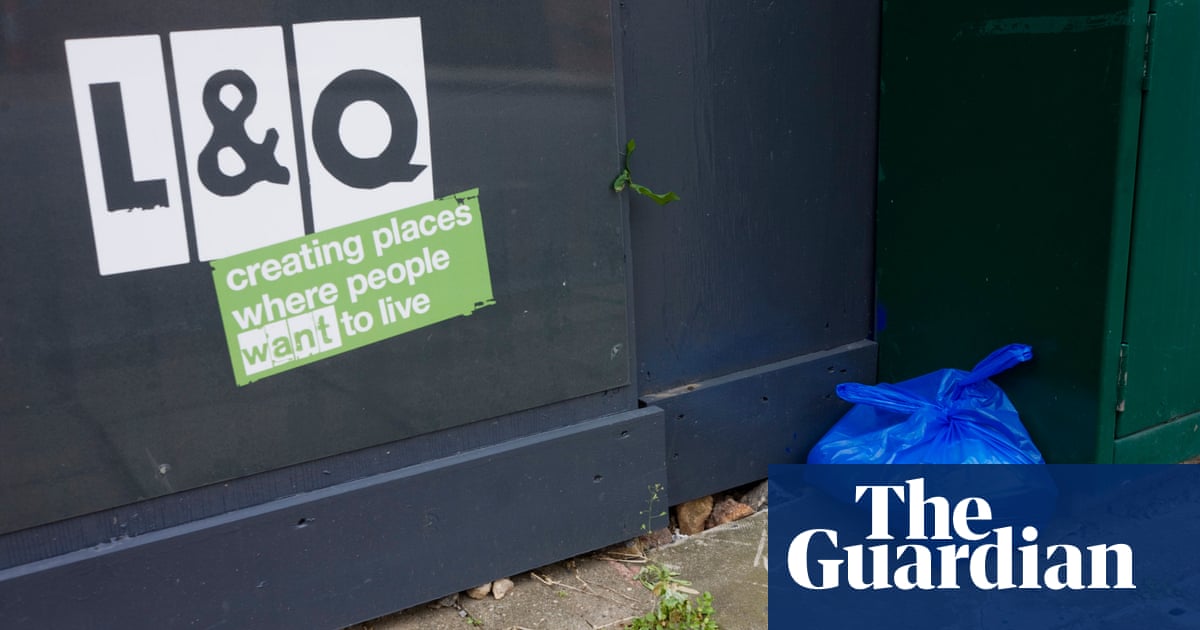Residents of an apartment block owned by London’s largest housing association have spoken of their despair after being left for 12 days without running water during repairs to a leaking supply pipe.
Social housing tenants and leaseholders in the block of 12 flats in Sidcup, south-east London, said they were unable to shower or clean for nearly a fortnight when their water was shut off by London & Quadrant contractors without warning last month. Some, including older and disabled people, said they were forced to live in saturated rooms with black mould while waiting for the leak to be resolved.
Anna Petrova*, 76, said she had to use the showers at a leisure centre, a 20-minute walk away, and was unable to clean her flat, which had become infested with mould.
“Thames Water has been delivering bottled water daily, but residents had to carry it up flights of stairs from the entrance hall, and it was not enough to wash up or flush the toilet,” she said. “Friends let me use their toilet, but one of my neighbours is 93 with advanced dementia and another is blind and disabled and not in a position to cope with this. I was on the phone daily to L&Q, who were unable to tell me how long we would have to live like this.”
Residents say they received no written notification that they would lose their water supply. An L&Q contractor had knocked on front doors before turning it off, but those not at home only discovered the fact when their taps ran dry.
L&Q, which houses about 250,000 people in more than 105,000 homes, mainly in London and south-east and north-westEngland, admitted to having failed to provide adequate updates and advice and had been slow to restore the supply. In a letter to residents, it acknowledged that the bottled water provided was insufficient for their needs, and that it should have advised people on how more could have been requested.
The supply was restored last week but residents, including Petrova, said they were still dealing with mould and penetrating damp following the leak.
“It took L&Q three weeks to admit responsibility for the leak in a communal supply pipe at the top of the building,” she said. “It then took a further six weeks to fix it, by which time water had spread from my bathroom to my kitchen, and the electricity supply had to be isolated because the light fittings were flooded. I couldn’t leave my home because I had to keep emptying buckets of water when they filled up, and the rooms are now so saturated. I’m scared the floors and ceilings will collapse.”
L&Q has offered residents £420 compensation for the disruption to the water supply and promised to repair the damage to the flats of social tenants, but leaseholders, including Petrova, have been told to claim on their insurance.
In 2023, L&Q wasordered to pay £142,000to residents after an investigation by the housing ombudsman identified a “prolonged period of decline” in its service. Among its criticisms were delays in carrying out repairs, and failures to heed the needs of vulnerable residents. Previously, an independent reviewcommissioned after an investigation by the Guardianhighlighted failures to address urgent repairs.
L&Q told the Guardian that it had begun an urgent review into its responseto the problem, and that it had contacted residents to offer extra support.
“We’re very sorry that residents at Etfield Grove experienced so much disruption and distress because of the leaks and subsequent loss of water,” said David Lewis, the company’s group director of property services.
He added: “We recognise we should have done more to reach out and support them during such a difficult time.”
- Name has been changed
